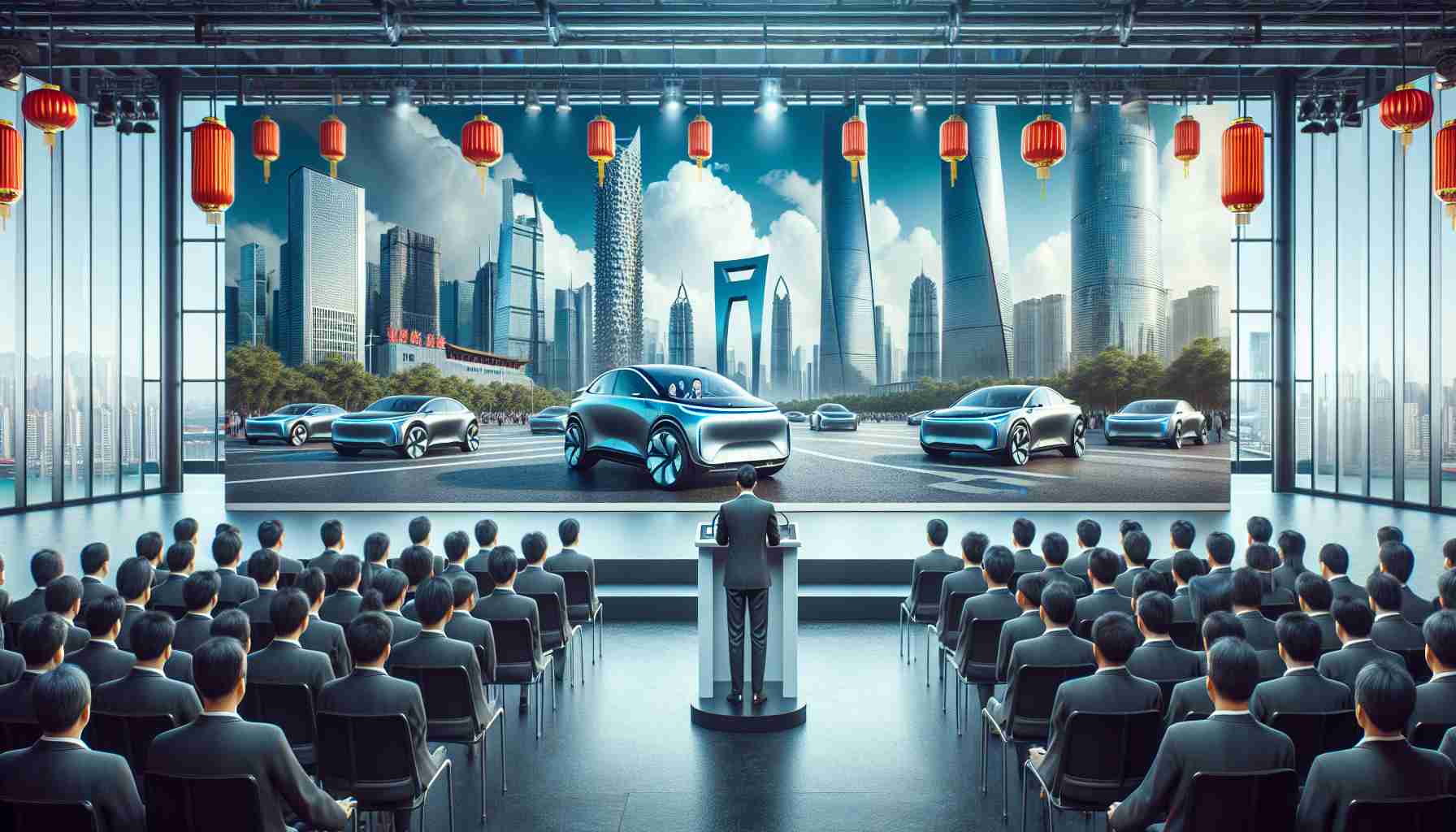- Toyota is establishing a new unit in Shanghai focused on producing electric Lexus vehicles and advanced battery technology.
- Production is expected to begin in 2027 with an initial output of 100,000 electric vehicles per year.
- The initiative aims to create approximately 1,000 jobs and stimulate local economic growth.
- Toyota is collaborating with the Shanghai government on carbon-neutral projects to support China’s 2060 carbon neutrality goal.
- This move reflects a broader shift towards sustainable practices within the automotive industry and responds to increasing global demand for eco-friendly vehicles.
In a bold move to electrify its future, Toyota Motor Corp is launching a new, wholly owned unit in Shanghai dedicated to revolutionizing the Lexus brand with cutting-edge electric vehicles (EVs) and innovative battery technology. Slated to kick off production by 2027, this initiative marks a significant step in Toyota’s commitment to sustainability and the booming EV market.
With plans to initially crank out an impressive 100,000 vehicles annually, this new venture will not only enhance Toyota’s presence in the EV sector but also create around 1,000 jobs, boosting the local economy and fostering innovation. The aim? To craft a state-of-the-art Lexus EV that reflects the company’s dedication to luxury and sustainability.
Additionally, Toyota is teaming up with the Shanghai municipal government to spearhead carbon-neutral initiatives. This strategic partnership aligns with China’s ambitious goal of achieving carbon neutrality by 2060, demonstrating Toyota’s commitment to environmental responsibility.
As global demand for eco-friendly vehicles surges, Toyota’s ambitious plans in China signal a pivotal shift toward a greener automotive landscape. Prepare to witness a new era of electric excellence as Toyota gears up to contribute to a cleaner, more sustainable future.
Key Takeaway: Toyota’s foray into the EV realm not only promises 100,000 new electric Lexus models but also underscores a commitment to sustainability through strategic partnerships in China.
The Future is Electric: Toyota’s Bold Move in the EV Market
Toyota Motor Corp is making headlines with the launch of a new, wholly owned unit in Shanghai, focusing on transforming the Lexus brand through advanced electric vehicles (EVs) and innovative battery technology. Set to begin production by 2027, this initiative solidifies Toyota’s commitment to sustainability and its strategic position in the rapidly expanding EV market.
Key Features of the New Lexus EV Initiative
1. Production Capacity: The new unit aims to produce around 100,000 electric Lexus vehicles annually, indicating a robust entry into the EV sector.
2. Job Creation: This initiative will reportedly create approximately 1,000 new jobs, significantly impacting the local economy and driving innovation within the region.
3. Strategic Partnership: Collaborating with the Shanghai municipal government, Toyota is actively contributing to carbon-neutral initiatives, aligned with China’s goal to achieve carbon neutrality by 2060.
4. Focus on Luxury and Sustainability: The upcoming Lexus EVs will integrate high-end features with eco-friendly technologies, promising an optimal blend of luxury and sustainability.
Pros and Cons of Toyota’s New EV Strategy
Pros:
– Significant investment in the growing EV market.
– Potential to set new standards in luxury EVs.
– Strong backing from local government for sustainability projects.
Cons:
– The competitive landscape in the EV sector is crowded with established players and new entrants.
– The ambitious production timeline may face challenges, such as supply chain disruptions.
Market Forecasts
The electric vehicle market is projected to grow rapidly, with an expected compound annual growth rate (CAGR) of over 20% from 2023 to 2030. Toyota’s entry into this market further validates the industry’s shift towards electrification, suggesting significant changes in consumer preferences and regulatory environments aimed at reducing carbon emissions.
Insights and Trends
As the global demand for sustainable transportation solutions rises, automakers are increasingly investing in electrification and cleaner technologies. Toyota’s strategy aims to not only meet consumer expectations but also lead in the luxury electric vehicle segment.
Frequently Asked Questions
1. What makes Toyota’s electric Lexus different from other EVs?
Toyota plans to integrate superior luxury features with cutting-edge sustainable technology, aiming to carve out a unique niche in the luxury EV market.
2. How will this initiative impact the local economy in Shanghai?
The establishment of a new manufacturing unit will create approximately 1,000 jobs, enhancing local employment rates and promoting economic growth in the region.
3. What are Toyota’s long-term sustainability goals?
Toyota is committed to achieving carbon neutrality across its entire product range by 2050, with the new Lexus EV initiative being a major step toward fulfilling this promise.
For more information on Toyota’s electric vehicle initiatives and sustainability efforts, visit Toyota Global.
